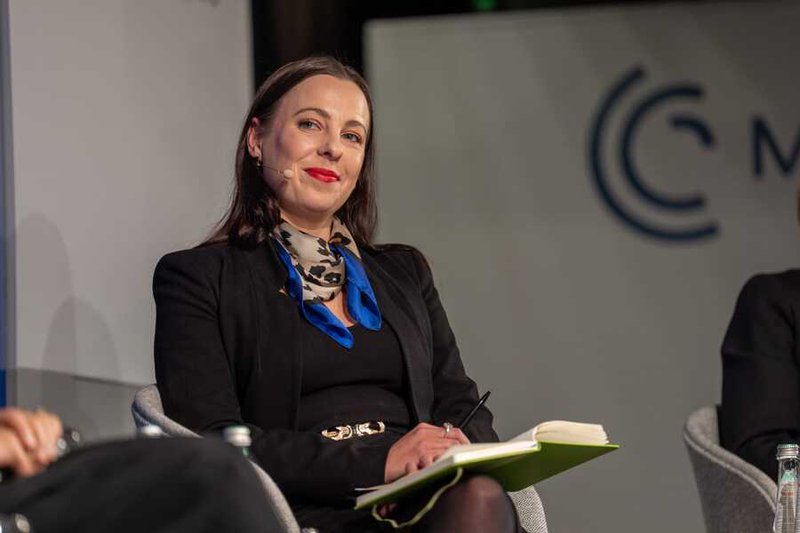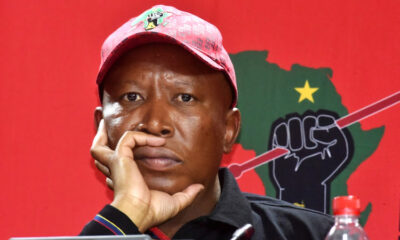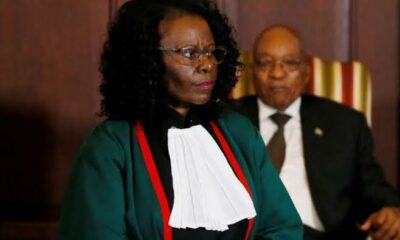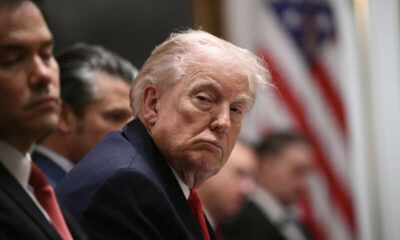News
Emma Powell Resigns Amid Allegations of Spying and Threats: DA Names Ryan Smith as Replacement

The DA’s outspoken foreign affairs figure exits her role under a cloud of intimidation and controversy
Emma Powell, one of the Democratic Alliance’s (DA) boldest and most internationally visible MPs, has stepped down from her role as the party’s international relations spokesperson, citing what she described as a sustained campaign of harassment, intimidation, and even surveillance.
Her resignation, announced this week, follows a storm of political controversy that has seen her clash directly with President Cyril Ramaphosa’s foreign policy approach and make explosive claims about being spied on by state actors. The DA has since appointed Ryan Smith, a Member of Parliament, to fill her shoes.
A Resignation Laced with Warnings
In a heartfelt statement posted to her X (formerly Twitter) account, Powell didn’t mince words about the toll that politics—especially as a woman speaking out on sensitive global issues has taken on her.
“As a woman in politics, I understand viscerally the cost of standing up to bullies,” she wrote. “In an environment that rewards expediency, truly principled leadership is rare and often costly.”
She thanked the DA for entrusting her with the role of representing South Africa’s constitutional values on the global stage, but also revealed just how dangerous that work has become.
Spied On, Silenced or Standing Tall?
Powell’s resignation comes hot on the heels of a Sowetan exposé that shook the political landscape. The article alleged that Powell had been under surveillance by South Africa’s State Security Agency after she reportedly “undermined” the country’s foreign policy during a visit to the United States.
A confidential document, allegedly shared with the National Security Council chaired by President Ramaphosa, accused Powell of spreading disinformation that damaged South Africa’s international standing.
Though the allegations have not been officially verified, they’ve raised troubling questions about the relationship between intelligence agencies and political oversight, especially when those being watched are elected public representatives.
Foreign Policy Firestorm
Powell has long been a thorn in the ANC’s side, particularly for her unflinching criticism of what she described as the government’s coziness with authoritarian regimes.
In one of her final acts before resigning, Powell claimed that Ramaphosa’s special envoy to the US, Mcebisi Jonas, had been denied a diplomatic visa—suggesting a significant diplomatic rift between South Africa and Washington. The Presidency swiftly denied the claim and accused Powell of pushing “disinformation” to score political points.
Presidential spokesperson Vincent Magwenya called the DA’s claims “sensationalism,” insisting they did not reflect the government’s position or the true state of international relations.
Inside a Deeper Crisis: Foreign Policy and Democracy
Powell’s parting words, though, offer a broader commentary on what she sees as South Africa’s drift away from its founding values.
“Over the past two and a half years, I have spoken out against some of the most repressive regimes in the world,” she said, pointing to countries that are “more enmeshed with government leaders and DIRCO than the public realises.”
Her suggestion that South Africa’s international partnerships are increasingly tilted toward authoritarian states echoes wider concerns among civil society and foreign policy analysts about the country’s diplomatic leanings.
Public Reaction: Support, Skepticism, and Concern
Reaction to Powell’s resignation online has been sharp and divided. Some South Africans praised her courage, especially women in leadership, saying she “spoke truth to power.” Others questioned the timing and raised concerns about her use of unverified diplomatic claims.
But there’s one thread that continues to dominate the conversation: how seriously South Africa’s intelligence and foreign policy institutions treat internal dissent and whether democratic oversight is still fully intact.
What’s Next for Powell and the DA?
Though she’s vacated the DA’s international relations post, Powell says she’s not leaving public service. “I will continue to use my time in Parliament to empower others, especially young women, to lead with bravery and moral clarity,” she said.
Ryan Smith, her successor, inherits not only the title but a portfolio riddled with political landmines. As South Africa’s foreign policy becomes an increasingly contentious space, especially amid global tensions and shifting alliances, Smith will have little time to ease into the role.
One thing is clear: Powell’s resignation wasn’t just a quiet exit. It was a statement. And its implications may echo far beyond Parliament.
{Source: The Citizen}
Follow Joburg ETC on Facebook, Twitter , TikTok and Instagram
For more News in Johannesburg, visit joburgetc.com



























